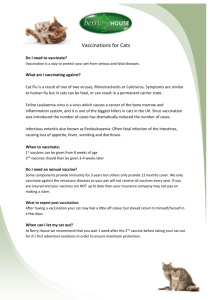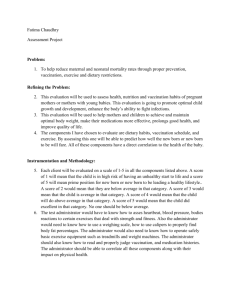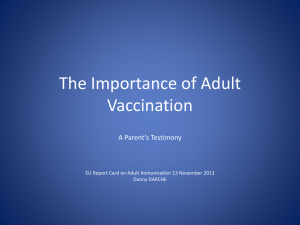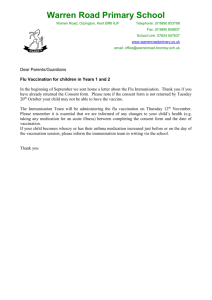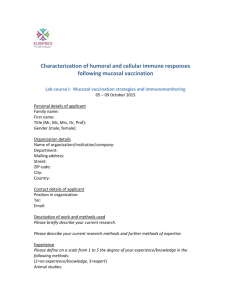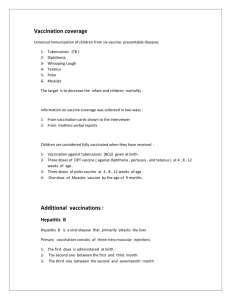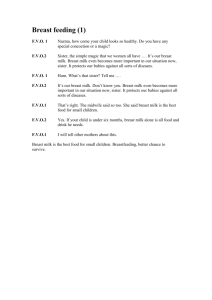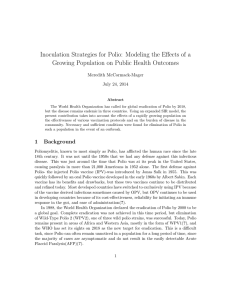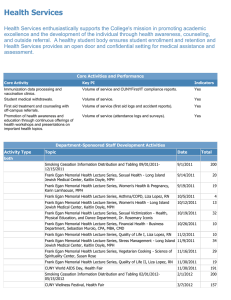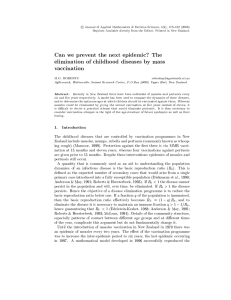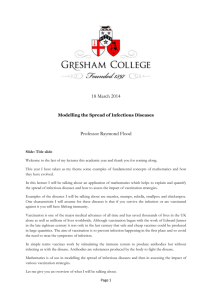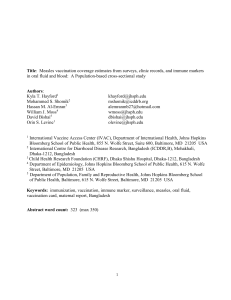if not vaccination then what
advertisement
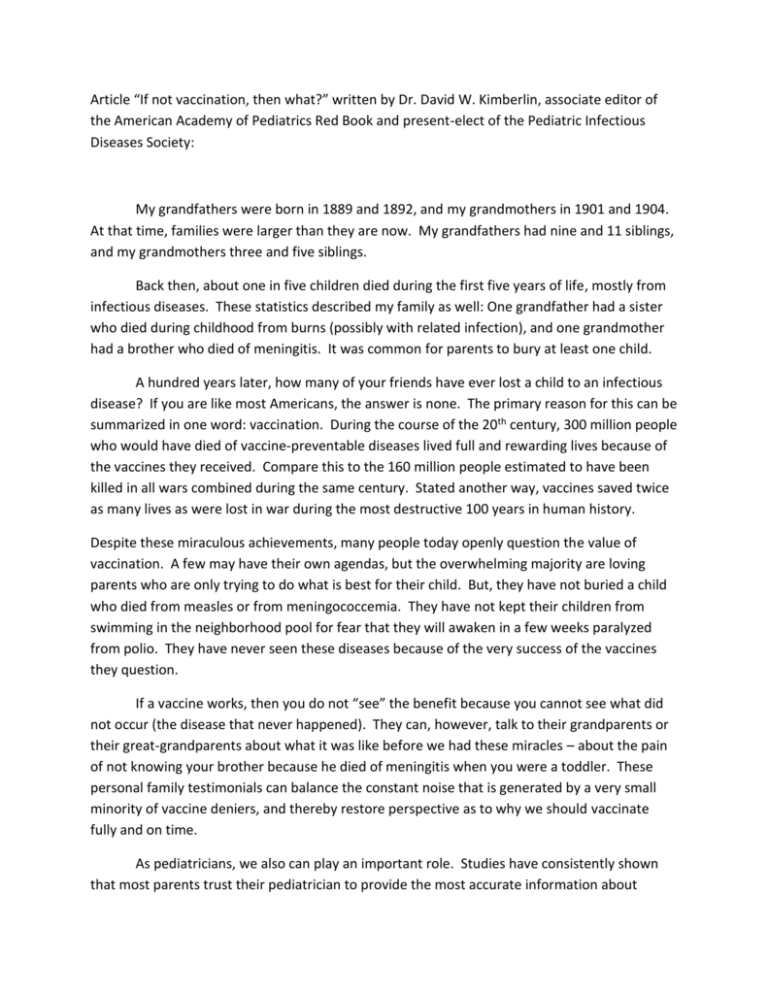
Article “If not vaccination, then what?” written by Dr. David W. Kimberlin, associate editor of the American Academy of Pediatrics Red Book and present-elect of the Pediatric Infectious Diseases Society: My grandfathers were born in 1889 and 1892, and my grandmothers in 1901 and 1904. At that time, families were larger than they are now. My grandfathers had nine and 11 siblings, and my grandmothers three and five siblings. Back then, about one in five children died during the first five years of life, mostly from infectious diseases. These statistics described my family as well: One grandfather had a sister who died during childhood from burns (possibly with related infection), and one grandmother had a brother who died of meningitis. It was common for parents to bury at least one child. A hundred years later, how many of your friends have ever lost a child to an infectious disease? If you are like most Americans, the answer is none. The primary reason for this can be summarized in one word: vaccination. During the course of the 20th century, 300 million people who would have died of vaccine-preventable diseases lived full and rewarding lives because of the vaccines they received. Compare this to the 160 million people estimated to have been killed in all wars combined during the same century. Stated another way, vaccines saved twice as many lives as were lost in war during the most destructive 100 years in human history. Despite these miraculous achievements, many people today openly question the value of vaccination. A few may have their own agendas, but the overwhelming majority are loving parents who are only trying to do what is best for their child. But, they have not buried a child who died from measles or from meningococcemia. They have not kept their children from swimming in the neighborhood pool for fear that they will awaken in a few weeks paralyzed from polio. They have never seen these diseases because of the very success of the vaccines they question. If a vaccine works, then you do not “see” the benefit because you cannot see what did not occur (the disease that never happened). They can, however, talk to their grandparents or their great-grandparents about what it was like before we had these miracles – about the pain of not knowing your brother because he died of meningitis when you were a toddler. These personal family testimonials can balance the constant noise that is generated by a very small minority of vaccine deniers, and thereby restore perspective as to why we should vaccinate fully and on time. As pediatricians, we also can play an important role. Studies have consistently shown that most parents trust their pediatrician to provide the most accurate information about protecting their children’s health. This is a great thing, and in it I believe lies the best solution that we have right now. All of us should passionately advocate for all children to receive all of their vaccinations at the appropriate schedule. When parents ask us what they should do, we should say that vaccines save lives, that we have protected our own children against these diseases, and that we want nothing less than the same for their children. Since vaccinehesitant parents have repeatedly acknowledged that they are relying on guidance from their pediatrician, there should be neither hesitation nor wavering when advising them on the value of immunizing their children in accordance with the approved schedule. The relationship between the family and the pediatrician is enhanced by this frank discussion. If they request an “alternative schedule,” we should use this as an opportunity to educate them as to why the approved schedule is the appropriate option for their child, since it has been evaluated for safety and effectiveness (which is not true for any of the “alternate schedules”) and since it minimizes the time that their children will be at risk for disease that can seriously harm or kill them. In this global age, all vaccine-preventable diseases are at most only 18 hours away by plane – as witnessed by the ongoing measles outbreak in France that in 2011 killed at least six children and left 12 with brain damage. Measles now is knocking on our door as well, with more than 750 cases just to our north in Quebec, Canada, and with two measles-infected people attending Super Bowl festivities in Indianapolis in February. If someone still hesitates to protect his or her child through vaccination, a reasonable question is, “If not vaccination, then what?” The answers are: If not vaccination, then sterility (mumps). If not vaccination, then paralysis (polio). If not vaccination, then deafness (pneumococcus, meningococcus, Haemo[hilus influenza type b [Hib], rubella). If not vaccination, then brain damage (measles, varicella, pertussis). If not vaccination, then permanent congenital damage (rubella). If not vaccination, then cancer (human papillomavirus, hepatitis B). If not vaccination, then death (Hib, penumococcus, meningococcus, polio, varicella, measles, diphtheria, tetanus, pertussis). There is a story of a man on the roof of his house during a flood. A lifeboat came by and offered to take him to safety, but he refused to get in, saying that God would save him. A second and then a third lifeboat came by, and again the man refused. He finally drowned from the rising waters, and when he got to heaven he asked God why He hadn’t saved him. God answered, “I sent you three boats!” Vaccines are the lifeboats that God has sent to us. Please get in.
